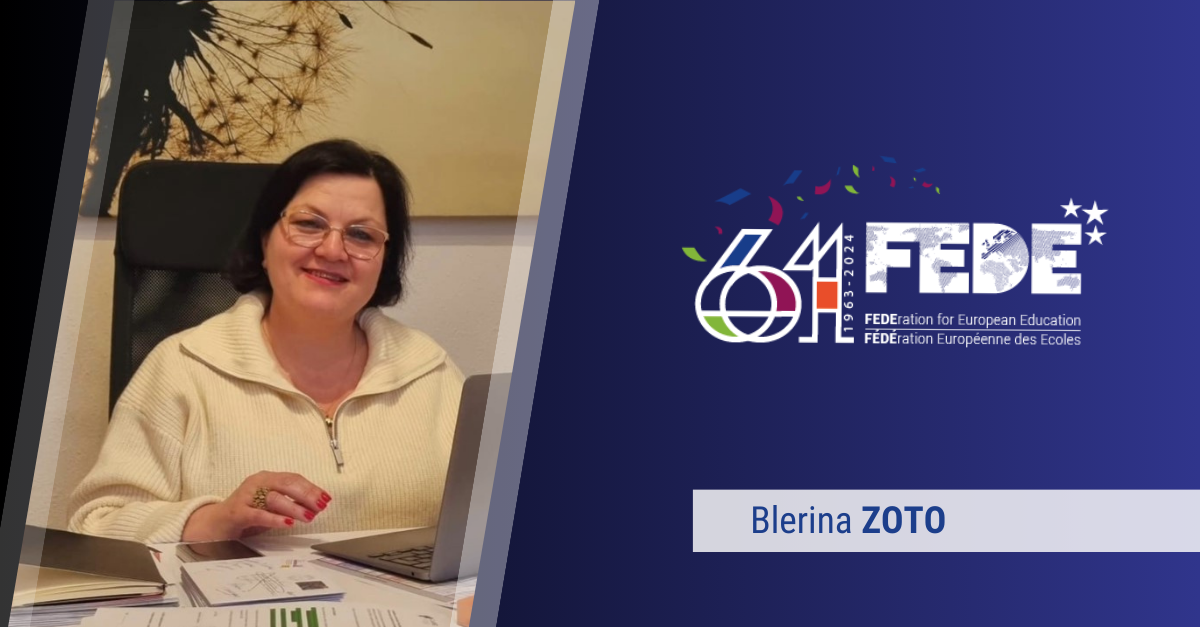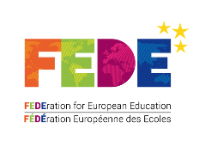
To mark the 61st anniversary of the FEDE and International Women’s Day on March 2024, we had the privilege of meeting Blerina Zoto, member of the FEDE Executive Board. An Albanian-Swiss diplomat, human rights expert and activist for women’s rights, Blerina has built up her career through various international missions, notably at the Ministry of Labour and Social Affairs of Albania, the Council of Europe, the European Commission and the United Nations as a human rights expert. Now living in Geneva, she is Chairwoman of the Centre de Liaison des Associations Féminines-Genevoises (CLAFG), a leading center for women’s initiatives bringing together around a hundred member associations and individual members.
Question: International Women’s Day was established in 1977 by the UN. What is your opinion on the persistence of this celebration 47 years after its creation? Do you think it’s a sign of failure?
I would not call it a failure, because in 1977, when the UN designated this day, the issues were different from those we are facing today. The fact that we continue to celebrate this day and take action to promote this cause demonstrates the work remaining to be accomplished. Rather than a failure, this day highlights the continued need to fight for gender equality. In an ever-changing society, women are often the first to suffer the consequences. Neglecting this day and the efforts that accompany it could set us back and compromise the progress already made.
Question: : In 2024, the theme of International Women’s Day is “Invest in women: Accelerate progress”, with a particular focus on implementing gender-sensitive financing. Do you see this as a form of positive discrimination?
Throughout my years of experience abroad, I have observed a transition from the notion of “positive discrimination” to that of “positive measures”. These measures aim to support minority groups facing inequalities. Their objective is to promote balanced gender representation in all areas of society. In this context, the programme “Research and Development Boost” (Coup de pouce recherche et développement) that we have launched at CLAFG aims to provide financial support for women in carrying out professional or academic projects. It’s an initiative that I am proud of, having handled more than 30 applications in two years, supporting women from different backgrounds in their development.
Question: You are establishing the Academy of Female Leadership to boost women’s engagement in diplomacy. Could you tell us more about this project?
We noted the lack of resources and training on this subject in Geneva to support women and provide them with the necessary tools to participate in politics, diplomacy, entrepreneurship and other areas. This is why we have launched this initiative within the CLAFG, to give women and girls access to these resources.
With so many challenges ahead, including conflicts, pandemic, global warming and evolving technologies, this academy aims to boost women’s confidence and prepare them to shine in society through a range of skills, such as managing difficult situations at work or public speaking.
As part of our commitment to female leadership, we are multiplying our initiatives. For example, in partnership with the UN, we are organising a classical music concert to be led by a female conductor with soloists who studied music in Geneva, in tribute to female composers of past centuries. I would also like to express my gratitude to the FEDE for its commitment through our partnership so that women can obtain diplomas recognized at the European level.
Question: What is your opinion on the idea of adapting urban infrastructures and services to meet the specific needs of women?
In my opinion, these are the challenges of 2024. These issues did not exist when International Women’s Day was established in 1977. This is why it is crucial to raise awareness about the importance of this adaptation by including women in the process, because they are the main stakeholders.
Question: Do you think that women are included when we refer to “les droits de l’Homme” in French, given that the term “droits humains” is preferred in several European languages?
This has always been a central issue in international organisations. While the term “droits de l’Homme” is commonly used in French, other languages prefer the expression “droits humains”. This reflects an evolution towards a more inclusive terminology, encompassing all of humanity rather than just men. Encouraging the use of the term “droits humains” is a laudable initiative, taking better account of women in the discourse on rights.
I welcome the initiative of the FEDE to use the term “droits humains” for the prize it organises each year. . I sincerely hope that other organisations in France will follow this example and move towards the widespread adoption of this terminology. The gradual abandonment of the term “droits de l’Homme” in favour of “droits humains” would represent a significant step towards a more inclusive recognition of the rights of all people, regardless of gender.
Question: In your opinion, what are the next priority areas at European level to progress towards gender equality? Is inclusive Artificial Intelligence one of them? How can women fit into this field?
Artificial Intelligence represents a challenge, bringing both opportunities and risks. It is crucial that women seize this opportunity and actively engage so that the development of this technology is no longer largely dominated by men. Indeed, it is through our engagement that we can influence this change. It is therefore essential that women feel involved and do not stand on the sidelines of this opportunity to shape the future of this sector.
